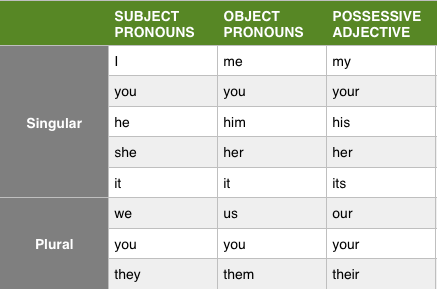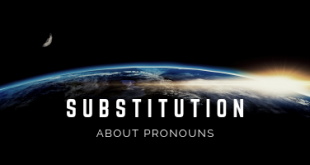Possessive Case
a) ‘Possessive case’ is that possessive situation is used with nouns. In this case, it is added (‘s) suffix to the end of the nouns.
The new manager‘s performance is not as satisfactory as we have expected.
b) If a noun is plural; that is there is (s) suffix at the end of the noun, it is only put (‘) .
The boy‘s mother is in the living-room talking to her friend over their exam results.
c) If the noun is plural but irregular, it is put (‘s) suffix.
The children‘s parents started to be worried since they hadn’t been in sight for a long time.
d) (s) suffix may be found at the end of some proper nouns. In this case, possessive feature can be expresses both by being put (‘s) suffix to the end of the noun and by only being added (‘) suffix on condition that proper nouns pertain to.
Melis‘s (Melis’) ideas have attracted no attention in the department meeting.
e) Possessive feature always is given with ‘of’ at inanimate entities. However, ‘s is also used with organization names (company,firm …) or words such as Britain, Asia, town, world, city.
The pages of the book have been torn as it has been used for a long time as a reference book.
You need to change the colour of the room and choose a lighter one.
the city’s landscape – the landscape of the city
the firm’s administrative staff – the administrative staff of the firm
f) ‘s is also used with words and patterns besides time words.
I saw the ad in yesterday’s newspaper.
FOR EXAMPLE 💡Urbanization and globalization will be discussed in tomorrow’s session.
Never expect to be successful after just one hour’s study!
I felt myself completely numb and lazy after twelve hours’ sleep.
- Have you taken your new torch with you?
- It is John‘s book. = It is his book.
- They are my friends’ bikes. = They are their bikes.
- A stone hit me on the head while I was passing by children’s playground.
- One of my friends had a terrible pain in the stomach yesterday.
- One has an obligation to one’s friends.
- Whose book is this?
- I have lost my pen. (NOT …the my pen)
- James has decorated his new house in such a way that its style charms everyone.
- Peter and Sarah have decided to get married in the summer and they think that their wedding will be an unforgettable one.
- My friends and I are working for a charity and we donate some of our pocket money there.
- I don’t need your trekking equipment; I’ve brought my own rope and helmet.
- You can’t find the chart in this computer as Mike wrote it on his own laptop.
- Dora has always longed for a house of her own/ her own house.
- I can’t understand why she likes having a holiday on her own. (alone – by herself)
- It was a real success for the kids to clean the whole garage on their own. (without help – by themselves)
 Learn English Fondly Learn English Fondly,Easily,Quickly
Learn English Fondly Learn English Fondly,Easily,Quickly

